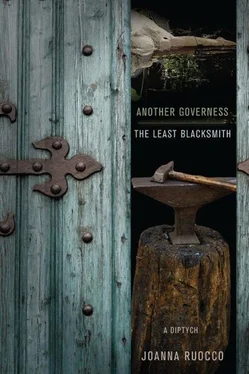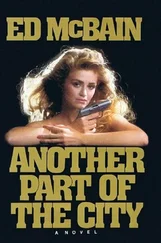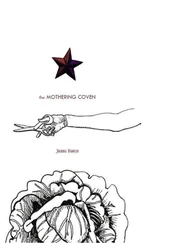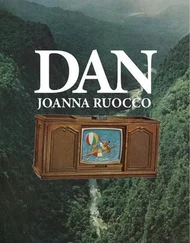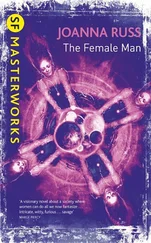There will be no delivery of bar iron to the forge. We do not have money in the bank. My brother says that he now understands our father's ledgers. Our father was not depositing money for safekeeping in the bank. He was paying the bank each month so that the bank would allow him to work in the forge. We had always believed that our father owned the forge. Our father did not own the forge. The bank owns the forge.
Tears come to my brother's eyes because he finally understands the ledgers. He had not cried when our father died. Then my brother thought he was our father's survivor. Our father's name survived in the forge. The forge survived because my brother was blacksmith. My brother's good work would carry on the good name of the forge. My brother had no reason to cry. Now he knows that the forge should not be called by our father's name. The name is really the same as the name of the bank.
My brother had seen two soldiers stationed by the outer doors of the bank and two soldiers stationed inside, one on either end of the tellers' long counter. At first my brother felt surprise when he saw the soldiers. Before the town became prosperous there was no need to guard the bank. Now the bank must be guarded. More and more money goes in and out of the bank. When thieves leave their strongholds in the wilderness in the south, they travel north until they reach a prosperous town. Before, the thieves used to pass by our town. The dilapidated buildings of the town could not interest the thieves. Now the thieves note signs of prosperity. The buildings in the town are faded, but civil ensigns fly from the ships in the bay. Tall buildings are being erected in the foreign district. Thieves can see these tall buildings from far away, from far down the coast. The thieves head straight to our town. They target the foreigners' investments. The soldiers have been stationed at the bank to keep the investments safe. They have received orders to shoot any thieves on sight. In a prosperous town, thieves are recognizable. It is easy for the soldiers to shoot the thieves.
My brother stood behind the draper in the line at the bank. The draper was depositing large bags of money. He seemed pleased to see the soldiers stationed at either end of the tellers' counter in their clean, smartly ironed uniforms. The draper is happy that the soldiers take such good care of his uniforms. The draper does not have to worry that the soldiers will be too careful with the uniforms, so careful that he will not need to produce more. Every time a soldier is injured or killed, his uniform is spoiled. No matter how careful a soldier may be, eventually he will either spoil his uniform or he will attain a new rank. When soldiers attain new ranks, they qualify for new uniforms. When soldiers are injured or killed, they are replaced by new soldiers who require uniforms. The draper could not be happier. There is no end to the demand for soldiers' uniforms. If he ever lost his contract with the agency responsible for providing uniforms to soldiers, he would kill himself at once. The life that the draper used to lead before he won his contract is so incomparable to his life today that they cannot be considered the same thing. They cannot both be called life. Killing himself is the closest thing he can imagine to his old life. He said as much to my brother. My brother asked the draper to say the name of the bank. The draper said that foreigners had bought the bank. The name is completely foreign, too foreign to be said aloud. Soon the bank will be moved to the foreign district where a greater number of soldiers will be stationed outside and inside the doors. They will do an even better job protecting the bank.
I wonder if my brother has no hope. Sitting beside me on the hill with his hands by his sides, he looks as though he has no hope. The man who sold our father's father the forge had no hope after he lost his family to a common disease. Our father's father bought the forge. Our father's father had hope. He built our house behind the forge, where the man had buried his family. He built our house right on top of the man's deceased family. He had our father. Right away, he knew that our father would surpass him as blacksmith. Our father also had hope. He had my brother. Right away, he knew that my brother would surpass him as blacksmith. Our father had hope until the end, when he lay down on the floor of the forge. He had lost his name but he continued to work in the forge with his son. He knew that his son would work hard until he earned back his name.
My brother tells me he will work even harder so that he can buy the forge from the bank. He will earn back our father's name. The sun is setting. In the house, there is only enough food for my brother. I do not mind. I am not hungry. I do not tell my brother that the doctor came to see him and made me his patient. It is better my brother does not know the doctor came. My brother has no interest in the doctor. The doctor is not a customer. The doctor never brings his tools to the forge for repair. He travels by ship to conferences where he purchases new tools. He brings only paper to the forge. My brother does not have time to think about the doctor. While my brother looks through my father's ledgers I feel between the bed mat and the frame for my clipping of our father's obituary. I crumple it into my pocket. I place the doctor's clipping between the bed mat and the frame, flattening it carefully so it does not tear. I only need one clipping of our father's obituary. I prefer that I have the doctor's clipping. I will put my old clipping on the coals on the hearth.
When I go into the forge in the morning, my brother is holding the champion's knife. He is looking at the champion's knife. I make a noise and he notices that I am standing in the double doors. My brother smiles. He asks me if I want to play mumblety-peg. My brother has never asked me to play mumblety-peg. The children play mumblety-peg down by the wharves. Even as a small boy my brother did not throw knives at the mud. He wielded the sledge. He struck the iron wherever our father indicated. My brother's voice is not friendly as he asks me if I want to play mumblety-peg. I do not answer. My brother throws the knife at the anvil. It flips once in the air and breaks apart against the horn of the anvil. I do not move. My brother picks up the largest piece of the champion's knife. The fracturing of the champion's knife has caused my brother pain. He shakes his head. He does not understand how it is possible that I failed to make something as simple as a knife. My brother tosses the piece onto the hearth. The fire on the hearth is already hot. The champion's knife lands in the center of the coals. My brother shovels more coals on top, burying it. That is the end of the champion's knife.
It is difficult to work. I cannot look at the iron on the anvil without seeing my hands on the anvil, my hands where the doctor put them on the anvil. My brother taps. He taps. He turns the iron. I need to concentrate on the iron my brother turns. I need to concentrate on sending blood to my hands as I swing with the sledge. My hands need blood to grow. My muscles need blood. It is difficult to think about the iron and the blood at the same time. They have the same taste, but the iron is hard on the anvil and blood is fluid, like iron that has melted on the hearth, remaining too long beneath the coals. The champion's knife will melt beneath the coals. The champion's knife could run through my veins. If it cooled inside my veins, my veins would harden. My body would be hard and strong. It could be shaped with a few quick blows of the sledge. My body could be sharpened.
I look at my brother's throat above the apron. His throat is big and dark. It shines with my brother's sweat. I could press my sharpened arm against his throat and the skin would part. The darkness inside his throat would spill out. It would run over my arm. My brother's head would fall from his shoulders and land on the floor of the forge. I do not want to see my brother without his head. I am surprised that I can think of such a terrible thing. My brother's head is filled with blood and if his head were not attached to his body, the blood would cool. It would harden. My brother's head would be heavy and would yield too many nails to count. I would make his head into all kinds of nails and sell them for a good price. My brother would be proud. It is easy to think about blood and iron when I remember that there is no difference between them. A person's heart is the hearth that heats the blood. There is no difference between heart and hearth.
Читать дальше
